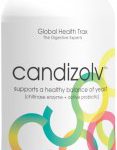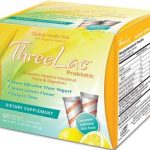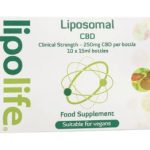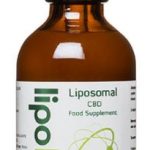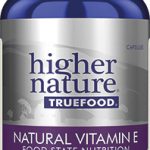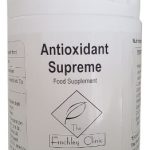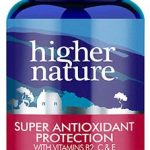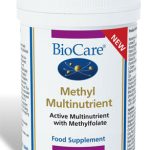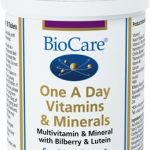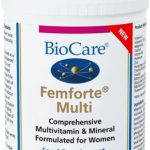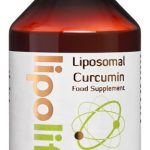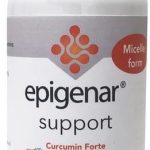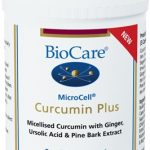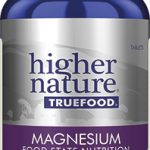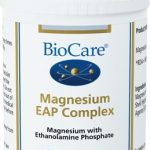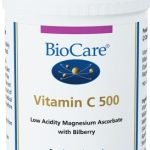Many of us are aware that we should take care of our bodies and maintain a sensible, balanced, healthy lifestyle so we don’t become obese and avoid the potential onset of type 2 diabetes. Yet far fewer of us are aware that doing those things are good for us because they also help to avoid an ‘overgrowth’ – or imbalance – of a particular kind of harmful yeast in our bodies, namely candida alcibans. If this micro-organism is allowed to run riot it can cause us all sorts of issues and ill-health – but, happily, it can be pretty easily treated, so long as you’re in the know!
Like it or not, candida alcibans is present in the bodies of billions of us humans; in fact, more than half of all of us on the planet – it can be found on the skin, in mucous membranes and in the gut (the intestinal system)1. That’s nothing to be afraid of in itself, however; so long as there’s a balance – especially in the gut – between ‘good bacteria’ (of which probiotics, a term you’ve no doubt heard of and may be familiar with) and ‘bad bacteria’ (candida, other yeasts and other potential micro-organisms), or a tipping of those levels in the good bacteria’s favour, then there no reason to worry. The trouble comes when those levels tip in the bad bacteria’s favour. Indeed, one such reason can be because of a suppressed (or weakened) immune system – possibly owing to an illness such as AIDS (acquired immune deficiency syndrome) or debilitating but necessary chemotherapy treatment – and don’t doubt it; the result can be candida going haywire and quickly spreading through your entire body2. Not pleasant.
And it’s an issue that’s only becoming more recognisable for people – estimates suggest that in the United States alone now, 25,000 people develop a candida imbalance each year. This is something worth worrying about – and undoubtedly necessary to address. Because, as noted, candida can be effectively nipped in the bud when it begins to thrive, yet only with the right treatment; increasingly so, it appears that the traditional methods are the wrong treatments (like many infections, the fungal-type’s becoming increasingly resistant to antibiotics and other synthetically-produced drugs).
This means then that today, without the right treatment, up to 1.5 million people around the world could actually die from fungal infections like candida each year3 – a staggering thought, but entirely preventable thanks to naturally-derived candida-combating supplements, such as one of the latest available through The Finchley Clinic, Candizolv (more on that to come).
Candida overgrowth causes
As noted above, it’s important to try to avoid candida overgrowth before it takes hold (prevention’s always the best cure!); to that end such causes to be wary of include:
- Alcohol – just as a poor, sugar-rich diet can contribute to microbial imbalance, so too can chronic alcohol consumption; far from everyone is likely to develop a candida overgrowth through this, of course, but owing to the levels of alcoholic indulgence in the UK, it’s certainly worthy of mention4
- Antibiotics – while they’re far from effective at tackling fungal infections, antibiotics can actually help fuel them (in part, that’s precisely why they struggle to treat them); because, if they’re doing their job, antibiotics will kill all bacteria, inevitably upsetting the bacteria balance (or microbiome)
- Compromised immunity – an effectively functioning immune system is crucial to help keep us fit and healthy; in order to fight all the infections that find their way into our bodies through the food and drink we consume and the air we breathe and, inevitably this goes for keeping candida in check too (note that your immunity can be compromised by many and various medical conditions and their medications5, 6, 7)
- Diabetes – as mentioned at the outset, diabetes and candida imbalance can both occur simultaneously, thus the latter is common among sufferers of the former; specifically, high blood glucose levels (hyperglycaemia) challenges the immune system, thus diminishing the urine’s ability to carry away antibacterial content and impeding the digestive system as a whole8
- Other health factors that may cause candida overgrowth are kidney failure (or haemodialysis treatment), organ transplantation or even possibly pregnancy.
Candida symptoms
So much for the causes, but how can you tell you may be suffering from candida imbalance? Well, if you experience a number of the following symptoms simultaneously, it’s well worth checking with a professional health practitioner, as the reason could be candida or fungal overgrowth:
- Abdominal pain
- Anal, penile or vaginal itching
- Arthritis-like joint pains
- Bloating, constipation and indigestion
- Ever increasing food allergies (for instance, gluten or celiac problems)
- Eyesight issues
- Fatigue and exhaustion
- Halitosis (bad breath)
- Itching eyes
- Loss of hair
- Mucous drainage from ears
- Oral thrush
- Seemingly incurable weight gain (or weight loss)
- Significant sinus drainage
- Sweet food cravings
- Skin rashes (i.e. eczema or atopic dermatitis; in skin folds or around the groin)
- Struggling to focus and concentrate
- Toe-nail fungi
Combating candida the natural way
So, with laboratory-produced medication proving increasingly ineffective in restoring balance to the microbiome and ceasing the spread of candida throughout the body, the natural alternative is to, yes, turn to natural solutions. Recent research suggests that the likes of lavender oil9 and garlic may prove beneficial in boosting immunity and combating candida, but just how effective they are is open to question; more research is necessary here. As is the case with the potentially promising antifungal properties of colloidal silver10.
What’s in far less doubt, though, given their efficacy has been proven via rigorous testing and customer feedback, are that naturally-derived products created specifically to tackle candida and restoring the microbiome to healthy levels are likely to prove a better bet. To that end, we recommend you take a look at the ‘Candida’ product section of our website, among which you’ll find these three excellent Candida supplements:
Candizolv – a blend of chitinase, chitosanase and other yeast dissolving enzymes, this fat-soluble candida infection solution targets the body’s fat cells themselves; slowly releasing its anti-fungal properties over time, thus weakening all yeast cells effectively, no matter their location in the body.
Threelac – our best-selling probiotic, this supplement (along with its sister product Fivelac) is consistently highly reviewed by satisfied customers, aiming as it does to control digestion and stomach problems and crowd out harmful flora in the intestines.
Wild Endive Formula – a botanical food supplement that goes together well with Candizolv as part of a candida-balancing regime, owing to the fact it may well help treat the effects of die-off reaction (the release of metabolic by-products following the destruction of candida cells).
References:
- ‘Tracking down pathogenic yeasts’. Fraunhofer. https://www.fraunhofer.de/en/press/research-news/2010/09/biotechnica-2010.html. Sep 2010.
- Hickman M. A. et al. ‘The ‘obligate diploid’ Candida albicans forms mating-competent haploids’. Nature. Feb 2013; 494 (7435): 55
- O’Meara T. R. et al. ‘Global analysis of fungal morphology exposes mechanisms of host cell escape’. Nat Commun. Mar 2015; 6: 6741.
- Choi J., Lee C., Lim Y., Kang H., Lim C. and Choi J. S. ‘Prevalence and Risk Factors of Esophageal Candidiasis in Healthy Individuals: A Single Center Experience in Korea’. Yonsei Med J. Jan 2013; 54 (1): 160–165.
- Maksymiuk A. W., Thongprasert S., Hopfer R., Luna M., Fainstein V. and Bodey G. P. ‘Systemic candidiasis in cancer patients’. Am J Med. Oct 1984; 77 (4D): 20-7.
- Fichtenbaum C. and Aberg J. ‘Candidiasis and HIV’. HIV InSite. Knowledge Base Chapter. Feb 2006.
- ‘Medications that Weaken Your Immune System and Fungal Infections’. CDC. cdc.gov. Page last reviewed: Jan 2017.
- Casqueiro J., Casqueiro J. and Alves C. ‘Infections in patients with diabetes mellitus: A review of pathogenesis’. Indian J Endocrinol Metab. Mar 2012; 16 (Suppl1): S27–S36.
- Zuzarte, M. et al. ‘Chemical composition and antifungal activity of the essential oils of Lavandula viridis L’Hér’. Journal of Medical Microbiology. 2011; 60, 612–618
- Groosh A. et al. ‘The prevalence of opportunistic pathogens associated with intraoral implants’. Lett Appl Microbiol. May 2011; 52 (5): 501-5.

